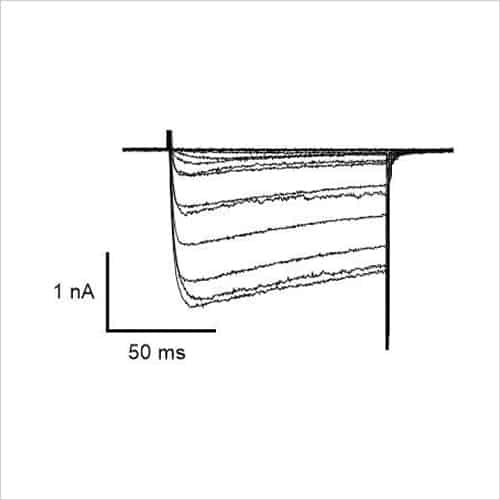Our experienced neuroscientists can devise studies using cultures of mixed populations or single cells, to enable comparisons of particular cell types and recording of isolated voltage- and ligand-gated ionic currents of interest. Such studies may be designed to extract in-depth biophysical data to allow a better understanding of the role of specific ion channels in generating neuronal excitability, and demonstrate the potential of customer compounds to modulate such activity. An example of this approach is shown in Fig. 1 where voltage-gated properties of calcium currents are measured from rodent dorsal root ganglion neurons. Alternatively, the pharmacological inhibition or activation of specific ion channel subtypes by reference and test compounds can be examined in detail, helping to verify their specificity and mechanism of action (an important task as confirmation of published data is essential to give confidence during target i.d. and validation efforts). Our experienced scientists are adept at interpreting such data and making recommendations for next steps.
With the current focus on phenotypic screening using complex assay system, it is essential that the specific target(s) and signalling pathway(s) of active compounds are established to confirm their target specificity, selectivity and mechanism-of-action. As well as offering proven ion channel expertise, we have the right partners offering other techniques, and our neuroscience capabilities are growing and expanding all the time.


